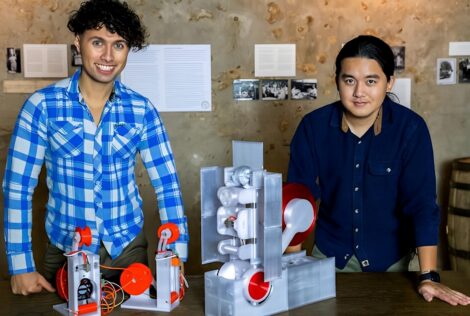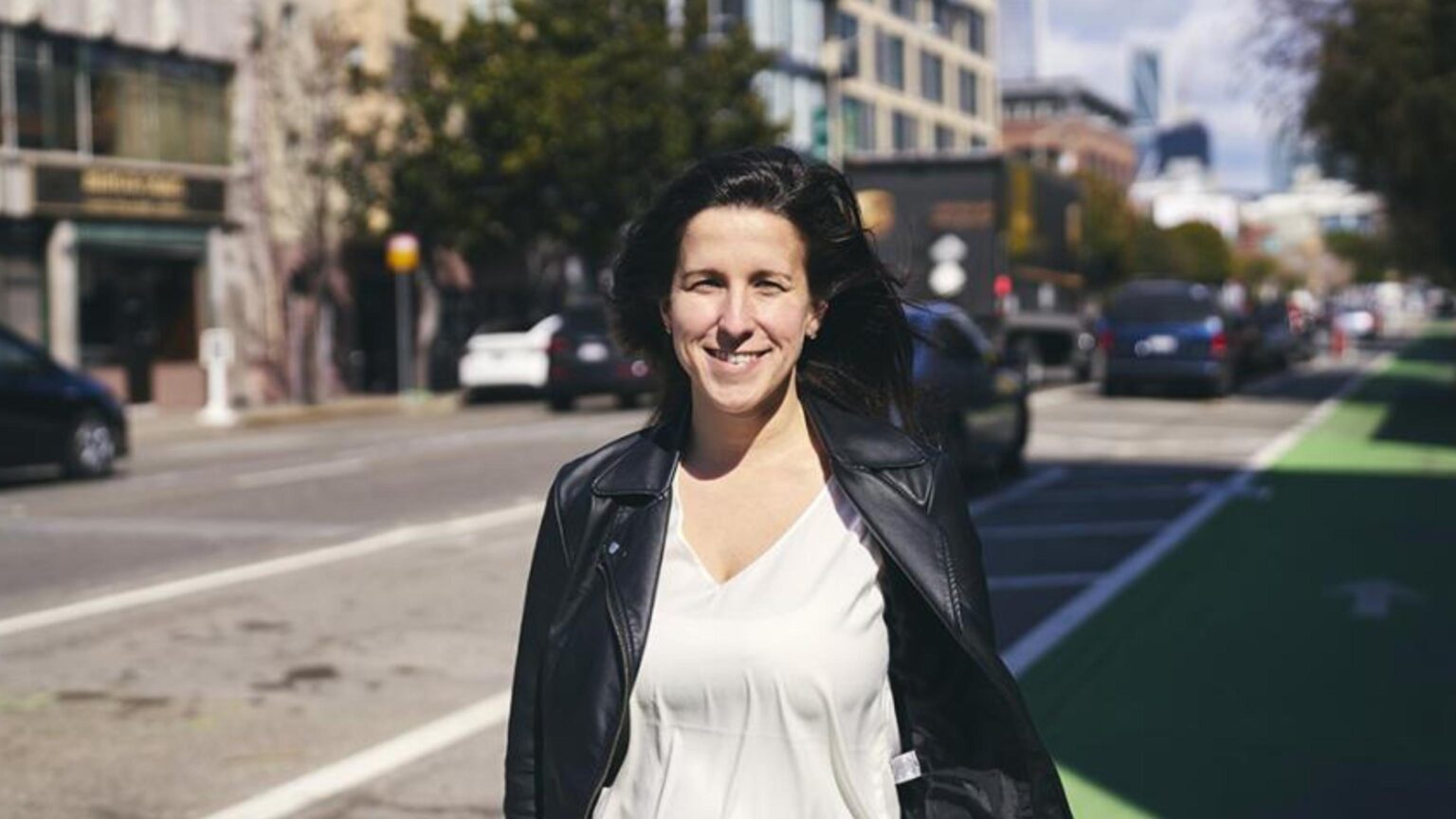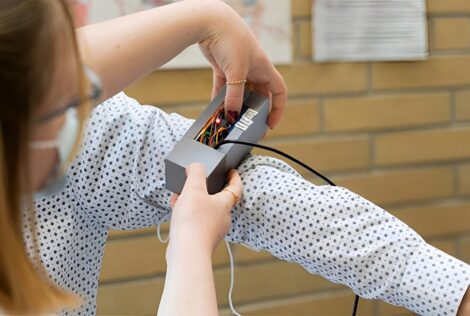

Eliminating heart disease is no easy feat. It’s one of the leading causes of death worldwide. But for Sarah Smith, who views the challenge through a more personal lens, anything is possible.
The electrical & biomedical engineering alumna has been motivated to try to help people with heart conditions ever since her Mom was diagnosed with one.
Along with fellow electrical and biomedical engineering alumnus Corey Centen, Smith launched Bodyport, a San Francisco start-up that is developing novel sensor technology to help predict and pre-empt heart disease from the comfort of your home.
By simply stepping on a bathroom scale, Bodyport scans the heart and body through the feet and measures weight and cardiac signals in just 20 seconds. With each measurement Bodyport builds a personalized baseline of health and deploys algorithms to detect subtle changes that are the precursors to disease.
“Our technology allows me to monitor my mom remotely and have the confidence in knowing what’s actually going on with her heart.”
Smith’s interest in building medical technologies began at McMaster where she teamed up with Centen and another classmate, Nilesh Patel, on their final year capstone project. The team created a device to assist in the delivery of CPR, which was featured as one of TIME Magazine’s inventions of the year in 2007.
“We were really fortunate that McMaster was supportive in getting the word out about it. The publicity propelled us to go from thinking about this as a research project to thinking about it as a real opportunity and a technology we could potentially commercialize.”
Immediately following graduation, the team founded Atreo Medical and continued to develop their CPR device, with the goal of improving survival outcomes from cardiac arrest. In 2010, Medtronic, a multinational medical technology company bought Atreo Medical.
Now, just over a decade after their graduation, Smith and Centen are making great strides with Bodyport. The device is currently being used in its first clinical pilot.
“We have devices that are being used in a clinical environment with patients who are undergoing invasive cardiopulmonary exercise testing. We’re measuring them before and after this test to look at how well our system is able to track these hemodynamic changes [the dynamics of blood flow].”
The company’s next step is getting Bodyport into the hands of patients that need it most. Monitoring a patient’s weight is the current standard of care for those with heart failure. Bodyport can look at both the weight changes and cardiovascular changes to help better predict impending events. This could help healthcare providers deliver remote interventions to keep patients healthy and out of the hospital.
“Hopefully we get to a point where we can have this technology in the home of every single person to predict the onset of disease long before it ever results in any type of clinical set backs. We can change the way we treat and manage diseases, from reactive to preventive, and help people live healthier, longer lives.”


